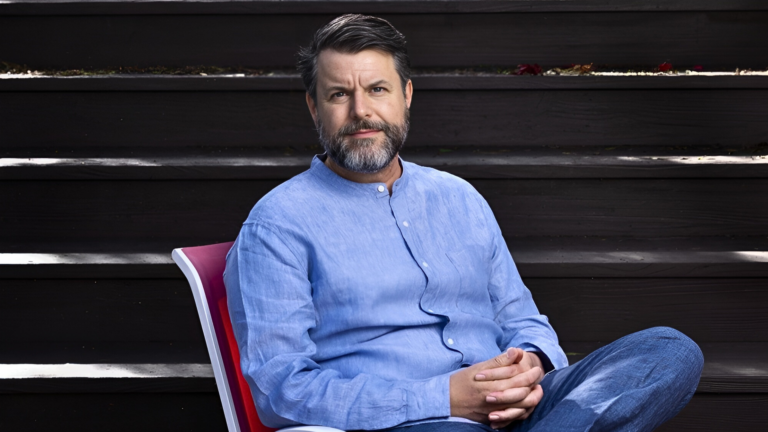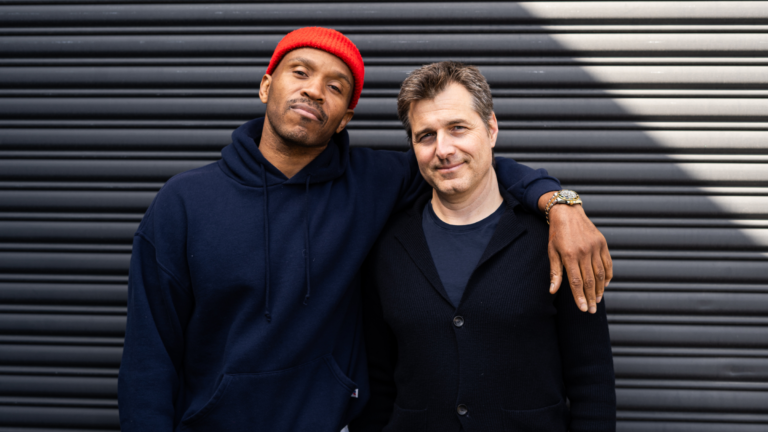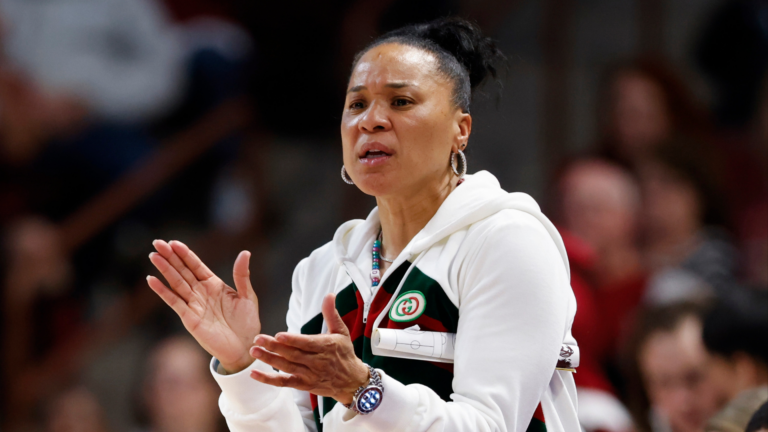This week’s conversation is with Alexi Pappas, an Olympic runner and an award-winning actor and writer.
A Greek-American, Alexi is the Greek national record holder in the 10,000 meters.
She graduated magna cum laude from Dartmouth College and also ran for the University of Oregon as a 5th year, leading the team to two NCAA victories.
Alexi has been profiled on the cover of the New York Times Sports Page, in Rolling Stone, on NPR’s All Things Considered, and was also featured on the cover of Runner’s World Magazine’s 50th anniversary issu, named as one of the two faces of the “new boom” in running.
Her memoir-in-essays, “Bravey,” with a foreword by Maya Rudolph was just released – and it’s the reason I wanted to have this conversation.
Now more than ever – mental health is at the forefront of what so many of us are dealing with.
My hope is that Alexi’s story – one of overcoming depression and seeing a grander version of what her future could look like can help you or a loved one get through any challenges of your own.
This is not an easy time… but maybe… this conversation inspires you, that you have more inside you, and reminds you that you’re not alone in this.
“When we try to imagine where we’ll be five years from now specifically, meaning I want to accomplish XYZ, we can often limit ourselves in what we’re capable of. If we plan too far in advance, we decide what we think we’re capable of. I think we’re so likely to sell ourselves short.”
In This Episode:
How she thinks about her future self
I think sometimes looking at our now self can be really limiting and it can give us the impression that we’ll always feel the way we feel right now and I think sometimes I have to think about my later self to… I have to think about doing something for my later self and knowing that the tomorrow Lexi will be different than the today Alexi.
How did the Olympics impact her mental health?
After I competed in the Olympics, I had post-Olympic depression. How I felt in that moment, I’ve never felt worse. I had this time when I was convinced that I would feel bad forever. And I think to believe that was, one not true. We’re never going to feel the way we feel forever but two, it was important that I believed that I could feel differently for a later… There was a later Alexi to save my own life I think. I think I learned it at a very young age when I chose running and then I had to learn it again when I faced this post-Olympic depression that so many Olympians face whether they win gold, or get last.
Initially valuing her body over her mind
I didn’t have the understanding that my brain might need help just like my body needed help. As an athlete and as an Olympian, I have tons of resources available to me. I have a team, I have coaches but I think where the gap was, was in me recognizing that my brain was like a body part that could need the same kind of help that my body might need. That my brain was part of my body.
What led to her post-Olympic depression?
I think the reason why it might’ve happened to me was because I’d spent so much of my time chasing this goal, this singular goal and never planned for the moment after which is fine because if you plan for the moment after the Olympics you might not get there but also that once it was over, I immediately wanted to know what the next goal was and didn’t respect that there might be another term, or period of time of respecting the adrenal fatigue that it took to get there in the first place. I just wanted to keep going.
Her experience with adrenal fatigue
I think it’s easy to feel like that is a symptom that only an athlete would experience but I think it’s anybody chasing a big dream. It’s anybody who’s high achieving and it’s particularly anybody who’s looking to solve an internal problem with an external accomplishment, which is something that I think I was at fault for doing probably since I was like five years old and lost my mom to suicide because it made me feel like I didn’t matter enough for her to stay. That’s a childish point of view but I was a child and I saw some really difficult things. My response was to chase things in the world that made me know that I mattered and the easiest way to do that is to chase an external achievement like the Olympics, or getting good grades, or things that can make you feel like you definitely matter. That’s great, it got me really, really far but then you get to those pinnacle, you get to those big moments and you realize, oh my God this is never going to solve that void of… It’s never really going to solve that problem because it wasn’t the right approach in the first place.
How he childhood shaped here
When I was born, my mom was already on this spiral… She was manic depressive. She was addicted to drugs and she was in mental hospitals, drug rehab, in and out of my life really. When she was in my life, when she was allowed to come home I have just four memories of her and three of them are really, really bad. The bad ones I think gave me that feeling of… They introduced me to bad pain, which is I think this idea of hurting yourself in a bad way and I think they gave me a vantage point to look at the opposite kind of pain, which is good pain which I associate with pushing yourself doing sports. There’s good pain and there’s bad pain and I think that introduced me to not only bad pain but also this feeling that I would be on my own and that I didn’t matter.
How did her experience with her mom change her?
To decide what’s the most useful way to look at this situation? And the most useful thing was to decide that good things were possible too. The very opposite end of the spectrum must be possible too. I’ve always had this deep, deep belief in myself and in the magic of the world and that yes, the world might take something from me but it is also abundant and it will give to me in spades in the other ways. I felt almost entitled to wonderful things and to people being available to me besides her. I think it birthed an incredible propensity towards finding mentorship and believing that really, really impossible magic things are also possible. That was a survival mechanism because otherwise you could take the opposite point of view and be like, “The world is going to take things from me. It’s going to continue to take things from me and I’m undeserving.” I just couldn’t think that way because it wasn’t useful.
Where did she find her way with words?
With words in particular, I’ve always loved finding the words to communicate but I’ve always felt that just like sport, learning how to write and learning how to communicate an experience, not just have an experience but communicate it was something I could learn too. I studied poetry and what that gave me was this time when I really focused on words because poems, of all the crafts in the world have this incredible attention and economy of words. I took in words and became a student of poetry just like I feel that I’m a student of running. I don’t think either are gifts that you’re just born with, or that’s really good enough. I studied a lot of words and my advisors made me write 100 poems to get three or four good ones. I think that mindset gave me an attention to words and appreciation for words. In writing this book, I think the greatest challenge was finding the right words to communicate and experience that I had and to be really specific about it, as specific as I could.
What makes a great coach?
If you have the privilege to be in person with a really, really good coach, they’ll have an eye for helping you push to your absolute edge and understand when to pull you back. That is something that I think is unique to excellent coaches where you actually feel like you can give it your all with your full integrity and they will be there to also evaluate that for you. I think sometimes when a coach, either they haven’t had the experience themselves, or they don’t have the eye, or they’re not with you, they don’t give you that gift of full throttle. With a great coach, you can try your best and you can trust that they will be the ones to hold you back. I know that that sounds like, “Oh, you’re an athlete. You should be able to hold yourself back.” But sometimes we just want to be able to try our best and have somebody else decide that we don’t need that last rep because we’ve already done the work that we wanted to be doing that day.
Her wish…
I wish for everybody at any level, chasing any dream athletic or otherwise that they have some partner, or mentor, or coach that feels like that perfect puzzle piece because it is truly remarkable and it’s a love. It’s a kind of love honestly that is different than a parent child, and it’s different than other relationships. I think a coach athlete or a coach mentee or whatever it’s truly something. Like the accomplishment of the athlete, or the person does not determine the wellbeing or the livelihood of the coach, or the mentor. And I think that was a big distinction is when I’ve had coaches where whether I win or lose, or make it to the Olympics or not, they’re going to be the same. Their stability, their foundation is still there. It has made such a difference. You can feel when they’re squeezing too tight.
Learning about imagery….
I learned visualization, or imagining the future self from a college coach. He was an Olympian himself and he explained to us about how we could visualize and that was when I started to learn that running… There were mental muscles I could grow not just physical muscles and he told us to imagine circumstances as specifically as we could that we imagine and this is to face challenges in particular, there’s also imagining how you want to feel and who you want to be but to face a challenge. He would try to get us to imagine as best we could challenges we would probably face. If it was a running race and you know there’s going to be a hill on the course, you know that’s going to be a challenge. He would have us visualize a couple of days ahead of the race, not right before because it can be exhausting, ourselves actually going through the practice of running up that hill and getting through it so that when we had the actual experience, we already decided that we could do it and we’d already seen ourselves do it, so it was like a repetition of something we’d already done.
Planning for the future
I think when we try to imagine where we’ll be five years from now specifically, meaning I want to accomplish XYZ, we can often limit ourselves in what we’re capable of. If we plan too far in advance, we decide what we think we’re capable of. I think we’re so likely to sell ourselves short and so I’ve always tried to plan no more than a year in advance, and if I’m thinking beyond that it’s more about how I want to feel rather than what I’m actually doing.
Flow state
The greatest I’ve ever felt athletically was when my mind and body were on the exact same page. The most euphoric way I’ve ever experienced it was at the Olympics. It was in the race and it did really feel like I was both running the race and watching the race happen at the same time. It was a real privilege because that was where my body could do whatever my mind wanted it to do. It was really amazing.
What does she wish others could take from her insights
I think that the world would focus… If they knew what I knew, they would go to the word useful a lot more often. That’s a word that I actually learned from my psychiatrist when I was really sick, which was he had me focused, one on my actions but two, to decide what actions. Whether it’s, what do I do today? Or what do I do with my life. To think about that word? What is useful? That could be anything from who am I going to share this mental health journey with, which nobody knew about except for my dad, my psychiatrist and my husband really it wouldn’t have been useful to share it with the world when I was going through it. But anyway, I think that, that word is like a guiding light. It’s pretty useful. The word useful is useful.
Her purpose
I think as me pre-2016 would have said that my purpose was to matter. I think it’s still to matter. I think it’s a good North Star. However, I think that I’ve come to realize that I do matter and I think now my purpose is more to manifest the greatest expression of myself and I know that will inherently do good in the world. As long as I’m not hurting anyone, or doing bad manifesting the greatest version of myself is a good thing. It’s good for me and it’s good for the world.


